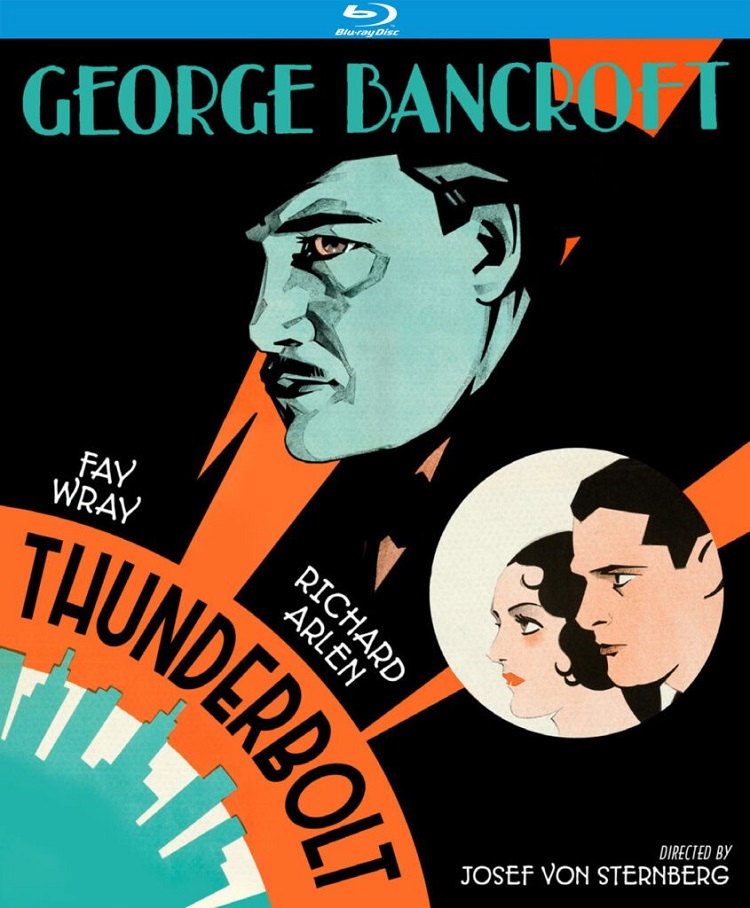
A remake of his earlier gangster film Underworld (1927), director Josef von Sternberg’s Thunderbolt (1929) is his first talkie. Even at 85 minutes it’s so… slow… that I had trouble keeping awake for most of it.
George Bancroft (Oscar-nominated for his spirited portrayal—and it’s the best performance here) plays the title character, a notorious crook who goes to prison for trying to kill the banker (Richard Arlen) who stole his girl (Fay Wray, covered in furs much of the time). Framed by Thunderbolt, the banker lands in the cell across from Thunderbolt’s—a scheme that allows the gangster to try killing him again before he goes to the electric chair.
Featuring script work by legendary scribes Charles Furthman (Underworld), Jules Furthman (The Big Sleep), Herman J. Mankiewicz (Citizen Kane), and Joseph L. Mankiewicz (All About Eve), the dialogue in this Paramount Pictures production has moments of wise-cracking snap. But it teeters on the stagey, like the advent of talkies had convinced the filmmakers to opt for a more tin-eared, theatre-based way of pacing and delivering information to the viewer. As a result, a strange, borderline-absurd vaudeville-ness punctuates the film. There’s a mother figure with a by-turn weepy and jumpy demeanor. There’s a stubborn dog who betrays Thunderbolt but comes to dote on him. There’s a nagging, bookish prison warden with a soft bite, and the ‘big house’ is a friendly, jovial place that rings with barbershop quartets and piano spirituals.
I wish the film had doubled down on the absurdism. It feels like Sternberg strove to create a balls-out weird experience but something or someone (the studio? The times? His own nerve?) held him back.
His shadowy visuals, though, give Thunderbolt a striking richness. And that expressionistic approach extends to his use of sound plucked straight from the mise en scene. Diegetic music (at a nightclub, and then at the prison), and pointed sound effects (e.g., a sewing machine, a squeaky dog toy), add atmosphere and occasional counterpoint to the events on screen. None of these elements lift the film that much; it remains slow overall, and tonally fractured—a boring, hammy musical melodrama. Still, anyone with even a passing interest in Sternberg’s filmography will find Thunderbolt a curio.
The Kino Lorber Blu-ray features an ok transfer (you can see elongated scratches on the print, but those may have been difficult to fix), an audio-commentary by Nick Pinkerton, and a couple bonus trailers for two early Alfred Hitchcock thrillers. Apparently, Paramount arranged an alternate, silent version of the same film. It would have been nice if the good folks at Kino Lorber had included that with this release; but hey—c’est la vie.